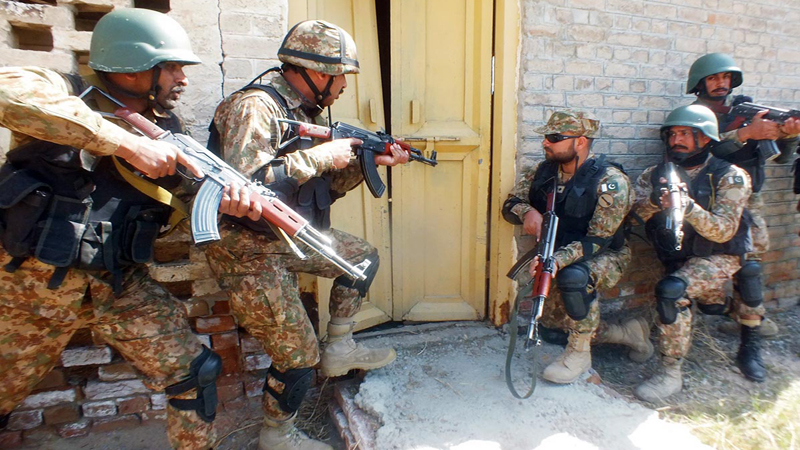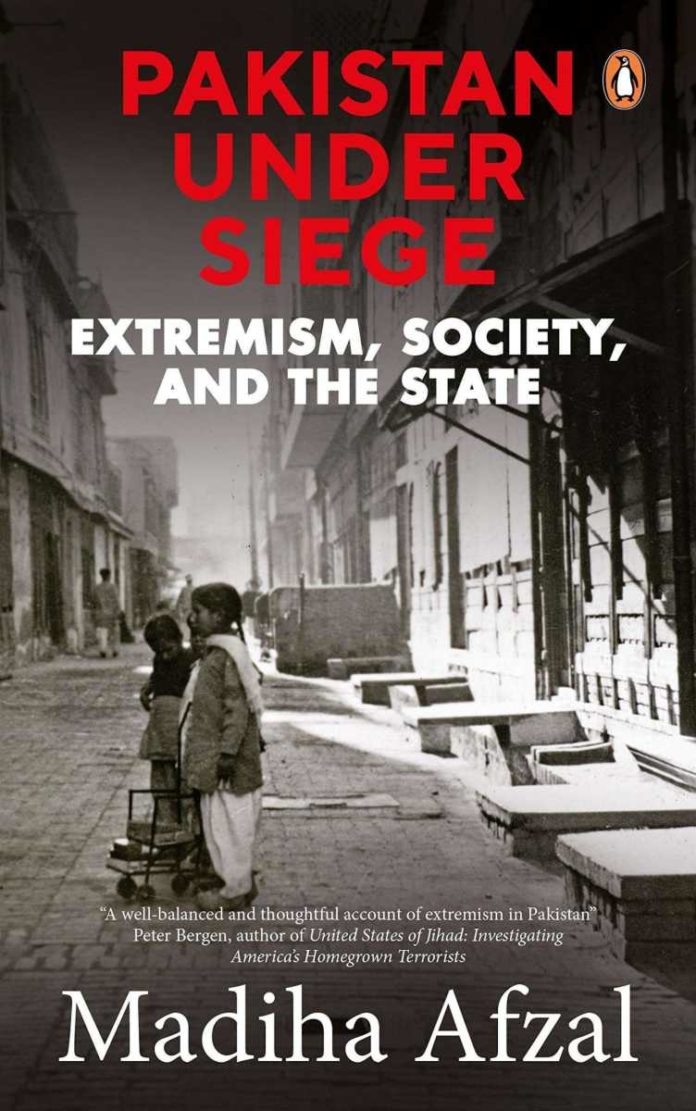The tragic incident of 9/11 and its response in the form of War on Terror initiated a new debate in world politics in which the entire international system was compelled to join the US-sponsored global counter-terror campaign. Pakistan’s decision to join the global anti-terror alliances, and Islamabad’s active role in fighting the transnational wave of terrorism, diverted the direction of international scholarly debates towards South Asia. Gradually, various circles of academic communities located in different parts of the world started mentioning the role of Pakistan in eradicating the clandestine networks of terrorist organizations. Varying arguments of international intellectual communities tried to define Islamabad’s participation in the Washington-led global war on terror through different angles. On similar lines, the book under review attempts to provide a brief overview of the complex phenomenon of terrorism and its association to Pakistan in the form of Islamabad’s countrywide counter terror operations. It is an updated study conducted by Madiha Afzal, whose research primarily observes Pakistan’s political developments. The book is an exclusive collection of analysis structured mainly on various primary sources consisting of different surveys and intensive interviews. It is an academic effort to scholarly explore the full picture of religious extremism and its militant dimensions in Pakistan. Madiha Afzal is professionally attached to Brookings Institution and Johns Hopkins School of Advanced International Studies. She served as Assistant Professor at the University of Maryland while developing expertise in security and political economy.
The book fundamentally contains an account of six chapters exploring the concept of religious extremism and its evolution in Pakistani society. The debate starts from a concise summary of terrorism as a phenomenon and its presence in different countries generally and Pakistan specifically. It highlights the origin and growth of various religious parties in Pakistan and their descriptions of Jihad, Sharia, and Islam at the societal level. In the end, the author concludes her study by pointing out positively Islamabad’s counter terror efforts in the form of various counter terror policies and their application in the form of different terrorism-combating operations across the country. The concluding part of the book explains the significances of Operations Zarb-e-Azab and Radd-ul-Fasaad parallel to describing the National Action Plan (NAP) and its formulation in Pakistan. The final chapter, An Appraisal and a Way Forward, discusses the scope and vision of twenty points counter-insurgency policy mechanism of Islamabad under the broader conception of NAP. By mentioning various incidents of terrorism and their devastating impacts on society, the author echoes Islamabad’s success in overcoming terrorism and its societal roots in the shape of various extremist organizations. Various narratives on the religiously extremist and ideologically fundamentalist sections of Pakistani society validate the study’s core argument with the help of different informative surveys. These surveys provide the role of education and its varying levels in Pakistani society while narrating the issue of religious extremism in academia (p. 97-109). The key arguments present a comparative analysis of the four militant groups, the Pakistan Taliban, the Afghan Taliban (AT), Lashkar-e-Toiba (LeT), and Al Qaeda (AQ). The Pakistan Taliban became a famous militant group under Tehrik-i-Taliban Pakistan (TTP), which has been a serious security threat for Pakistan based on data collected from the Pew Global Attitude surveys conducted yearly in Pakistan (p. 03-04). One of the most tragic terrorist incidents was the killing of the Governor Punjab by his elite-force security guard and the genesis of Blasphemy Laws in the Pakistani society offers a comprehensive account of fascinating arguments in the third chapter of the book Pakistan’s Legal Islamization.

In the existing literature on terrorism and its different forms generally and Pakistan mainly, Afzal’s study revolves around Islamabad’s counter-terror operation. While having an appreciable academic background supported by a PhD degree in economics from Yale University in 2008, the academic insight of Afzal empowers her intellectual standing to her academic peers. In contrast to positively discussing Islamabad’s terrorism-combating efforts, the principal argument is evaluated through various critical sources that have negatively evaluated Pakistan’s status in the US-sponsored global war on terror and its South Asian directions. Analogous to various other studies examining the US role in South Asia under its greater anti-terrorism campaign and Pakistan’s status as a frontline state fighting with clandestine roots of religious extremism and ideological fundamentalism, the study of Afzal is deficient in innovative and non-conventional thoughts. It can be summarised as an appropriate assembly of surveys that attempt to maintain an academic investigation of religious extremism and its socio-political levels in Pakistan, however, lacking novelty in its main structure. In this way, it is an adequate study to be able to understand the contemporary status of Islamabad in addressing the question of terrorism, which is deeply rooted in various extremist sections of society.





